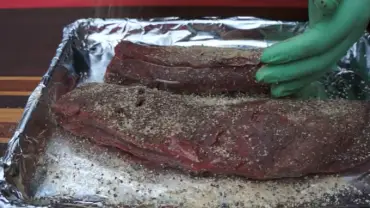Can You Drink Coffee on a Juice Cleanse Pressed Juicery
Can You Drink Coffee on a Juice Cleanse Pressed Juicery
Considering embarking on a juice cleanse? You might be pondering, “Is coffee permissible during a juice cleanse?” The response is a definitive “yes!” Curious about other options? Apple juice stands out as a superb substitute. Opting out of refined sugars, dairy, and processed goods for the duration is also a wise choice.
Apple juice is a great coffee alternative
Drinking a coffee substitute like apple juice can be beneficial while on a juice cleanse. You can also substitute it for coffee in your morning cup. Apple juice is rich in fiber, which is essential for smooth bowel movements. A juice cleanse without fiber will leave you with constipation. To avoid constipation during a juice cleanse, you should choose an apple that is organic and locally sourced. Alternatively, you can juice an entire apple and add it to other juices or smoothies. To get the most benefits from apple juice, you should leave the skin on, but make sure to use organic, locally grown apples. You should also keep in mind that only small amounts of fiber are retained after the juicer process. You can make your own juice or purchase it in a store.
While most people experience some detoxification effects after performing a juice fast, the effects of caffeine may not be immediate. Some people experience headaches and irritability after discontinuing their coffee habit. Another common symptom of a juice cleanse is fatigue and decreased energy levels. However, this is temporary and you will most likely regain the lost weight once your regular eating habits return.
If you must drink coffee during a juice cleanse, you should opt for caffeine-free options. You can opt for herbal or caffeine-free coffee. These beverages are made from herbs and do not contain any tannic acid, which is why they are a great coffee alternative. Unlike regular coffee, herbal coffees are not high in sugar and do not add to the body’s alkaline levels.
Avoiding processed foods
While juicing is a popular way to get your daily vegetables, fruits, and other nutrients, you should also try to avoid processed foods. It is best to consume natural, organic produce, without any added sugar or preservatives, whenever possible. Additionally, you should limit caffeine. To stay away from withdrawal symptoms, you should limit your intake of coffee drinks, particularly those with added sugar or flavors.
While juicing can be an effective way to detoxify the body, it lacks many nutrients our bodies need. A juice cleanse is not a long-term solution, and you should always eat a well-balanced, varied diet. Fiber-rich foods, lean protein, healthy fats, and water are excellent for digestion. Also, alcohol should be avoided, and you should limit concentrated sweets and ultraprocessed foods.
While the initial juice cleanse is great for detoxifying your body, you should also avoid any foods high in sodium and sugar. These can interfere with the cleansing process. Instead, eat more whole foods, such as green salads and nuts. These foods are a great source of antioxidants and fiber, as well as high-quality protein. If you have trouble deciding between the benefits of whole foods and juice, consult your doctor before beginning your cleanse.
It’s best to keep a journal to record your body’s reactions to different foods. By keeping a food diary, you’ll be able to identify which foods are causing you discomfort and which ones you should avoid. By avoiding processed foods, you can maximize the benefits of the cleanse and reap the rewards. Just remember to slowly introduce foods back into your diet. If you start with a juice cleanse, you’ll want to stick with it for a while before reintroducing more solids.
Avoiding dairy
If you’re planning on doing a juice cleanse, it’s important to know what foods you should avoid while you’re doing it. While a juice cleanse is a great way to get back on track with healthy eating, many people have trouble avoiding dairy products. To make the process easier, you can read this article to learn how to eat dairy-free during a juice cleanse.
The key to a successful juice cleanse is fresh, organic juice. Most juices you find in the supermarket are full of artificial colors, flavors, and added sugar. Instead, make your own juice using fresh fruits and vegetables. You can even make a variety of fresh juices with different types of fruit and vegetables, such as celery, kale, parsley, spinach, or apple. To stay on track, try mixing up the juices throughout the day to avoid getting sick of one particular type of food.
After the cleanse, you can gradually start reintroducing solid foods and dairy. The diet is similar to the one you followed prior to the cleanse, containing organic fruits, green vegetables, and brown rice. You can also slowly add back meat and eggs. It’s important to note the changes in your energy, digestion, cravings, and other symptoms after you’ve completed the cleanse. Make sure to plan your time carefully, as reintroducing any foods during a juice cleanse can throw your body out of balance.
The most popular juice cleanses will require you to remove wheat, gluten, and dairy from your diet, but if you’re not sure if this is the right approach for you, talk to your doctor about reintroducing these foods slowly and carefully. When you reintroduce the food to your diet after the juice cleanse, you’ll be able to see which foods cause you the most problems.
Avoiding refined sugar
When it comes to drinks, the best way to avoid drinking refined sugar is to stay away from coffee entirely. Many juice cleansers will encourage you to limit your intake of refined sugar and coffee, but this can be difficult for some people. If you are considering a juice cleanse, you should try to limit your consumption of coffee drinks to one or two cups per day. The rest of the day should be free of refined sugar and coffee.
You will gradually return to solid foods after the juice cleanse. You will want to eat organic fruits and vegetables, brown rice, eggs, yogurt, and meat. The best way to transition back to solid foods after a juice cleanse is to start slowly and mimic the number of days you spent on the cleanse. If you did this successfully, you will be able to continue to eat healthy and maintain your weight.
If you love coffee, drink it slowly and with awareness. A juice cleanse can break bad eating habits and create a more conscious approach to your diet. The benefits will last a lifetime. As a bonus, you’ll find that you enjoy drinking coffee, which is free of refined sugar and caffeine. The best part is, the cleanse is not that difficult! And if you stick to it for a full week, you’ll notice an improvement in your health in no time.
A juice cleanse can last anywhere from one to 10 days, but the average juice cleanse lasts about three to five days. If you don’t stick to it for more than a day, you’ll likely find it easier to lose weight, add extra vitamins, and improve your digestion. Depending on your lifestyle and health concerns, a juice cleanse can also be a great way to address health issues and treat some conditions naturally.
Choosing a juice cleanse
It may be tempting to drink coffee while on a juice cleanse, but that’s not healthy. Instead of sipping on a caffeinated beverage, drink organic, raw juice instead. It can help reboot your digestive system and infuse your body with vital nutrients. Make sure to drink plenty of water during your cleanse, and avoid caffeine, sugar, and alcohol. If you’re on medication, avoid alcohol or caffeine while on a juice cleanse.
There are dozens of different juice cleanse programs. It’s important to compare several different options and decide which one suits you best. Most cleanses last three to seven days, but you can choose a longer one if you’re really committed. Most juice cleanses consist of several juices a day, ideally geared for different times of the day. Some programs recommend light vegetarian meals after the cleanse.
During the first few days, it’s important to get adequate rest and head to bed early. Juice cleanses deplete energy, making it hard to workout or pull all-nighters. So, make sure to schedule your life accordingly. This is not a quick fix. Choosing a juice cleanse pressed juicery to drink coffee can be challenging, but it’s definitely worth it.
When deciding whether or not to drink coffee during a juice cleanse, you’ll need to take into account your needs. While coffee is an essential part of the human diet, it’s important to consider the health risks of caffeine consumption during a juice cleanse. If you’re trying to detoxify your body, coffee should be a limited part of your daily diet. Alternatively, you can stick with a diet that is low in caffeine. You may want to try a coffee-free juice cleanse if your caffeine consumption is minimal.








